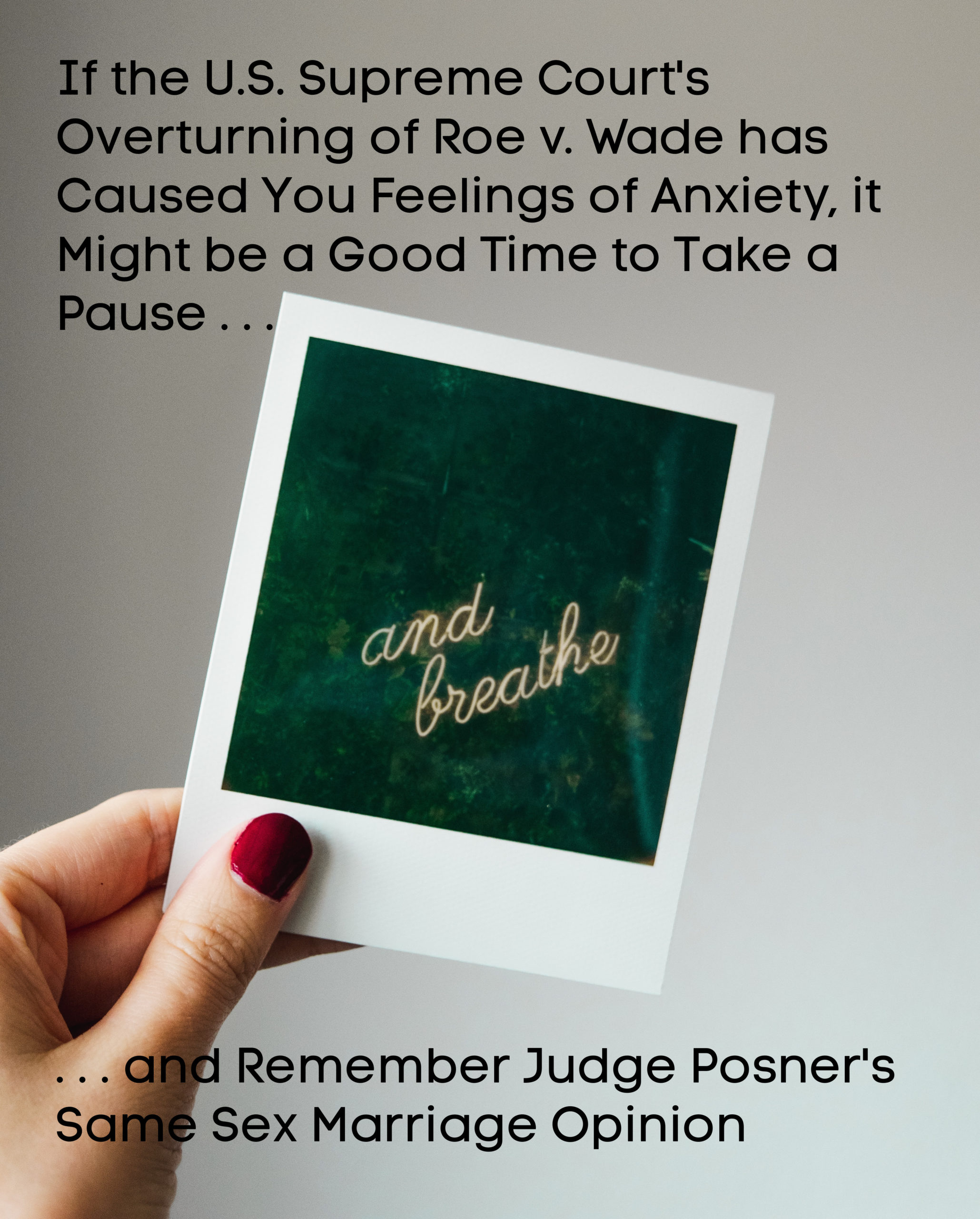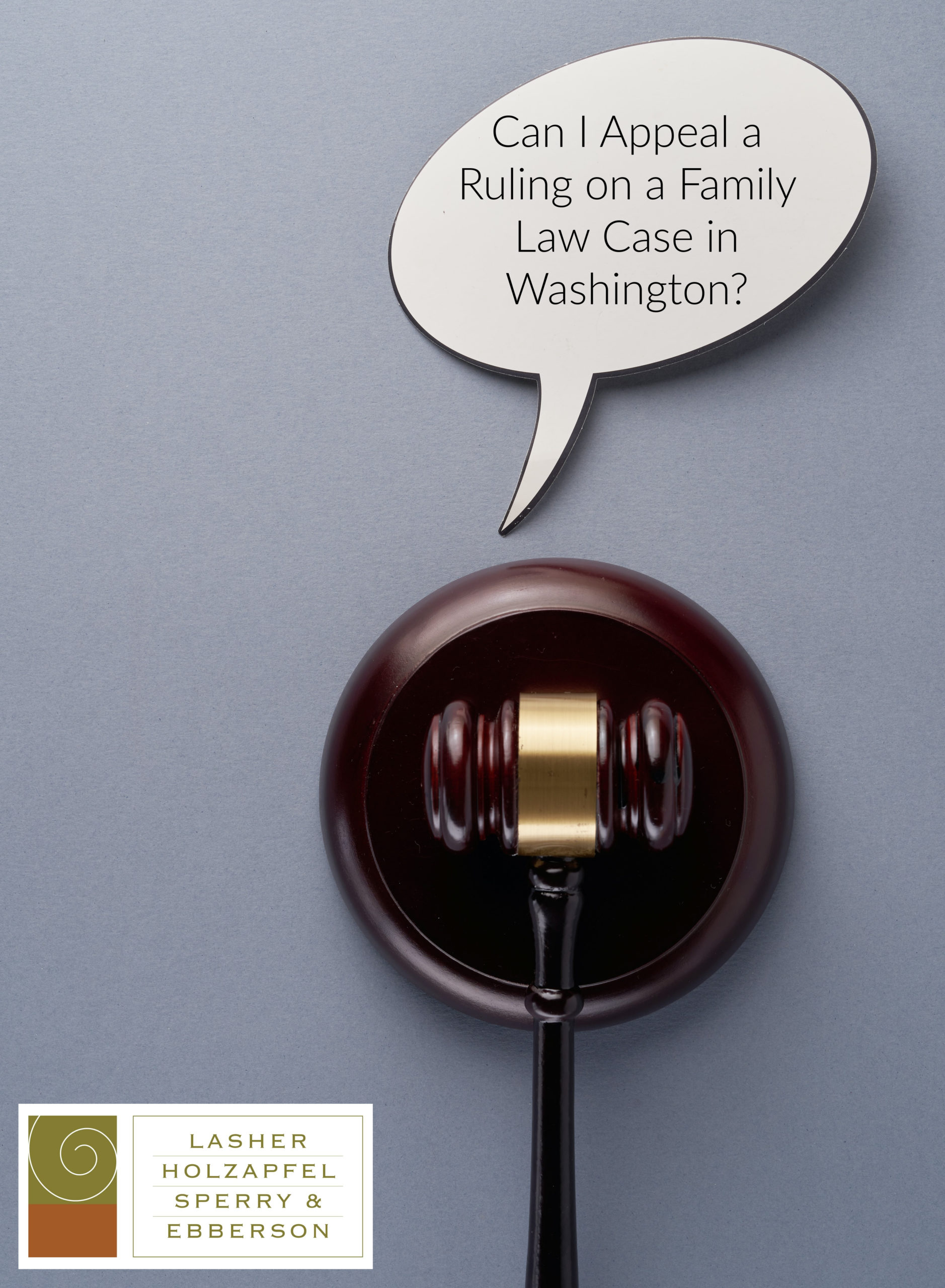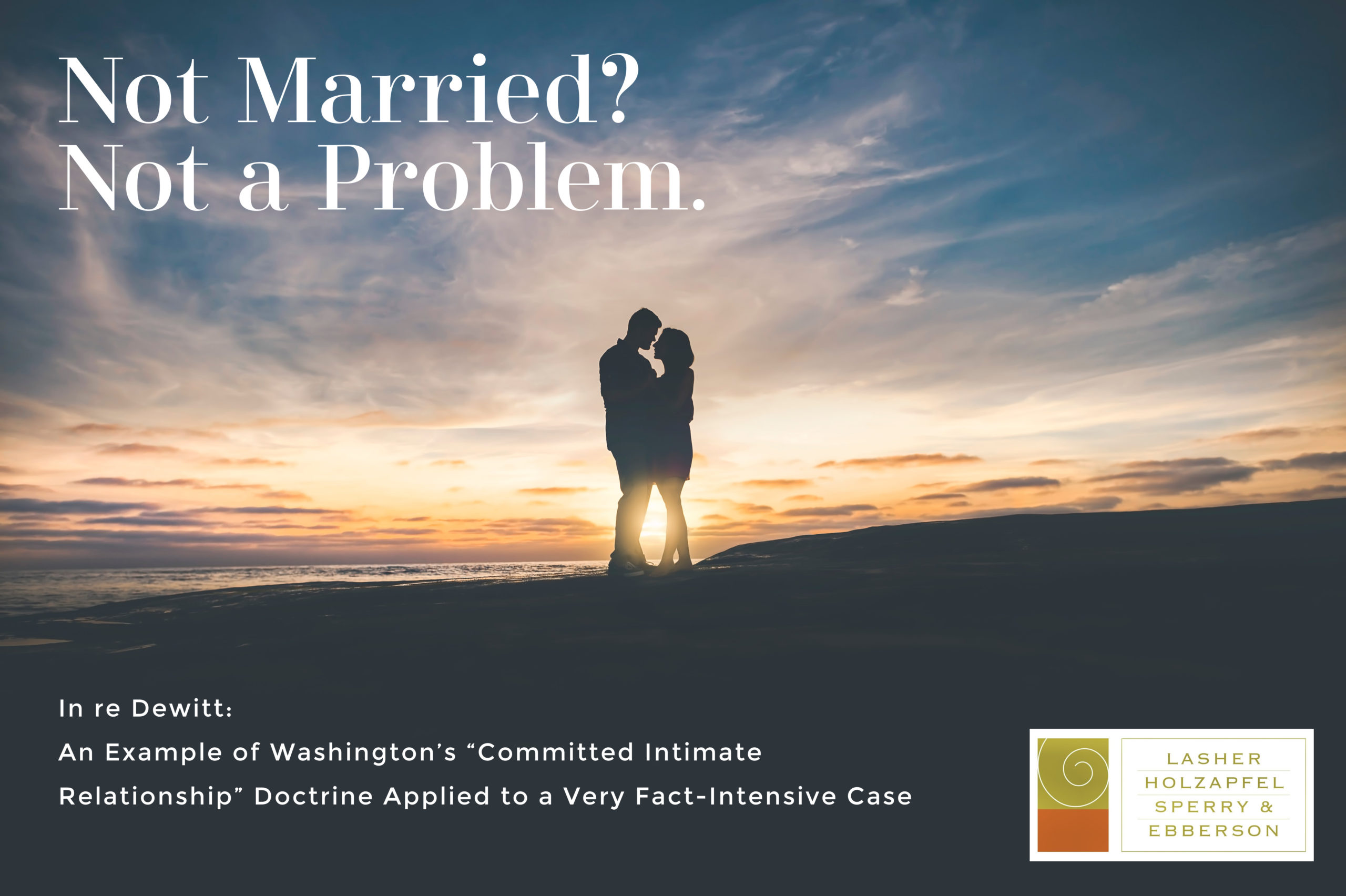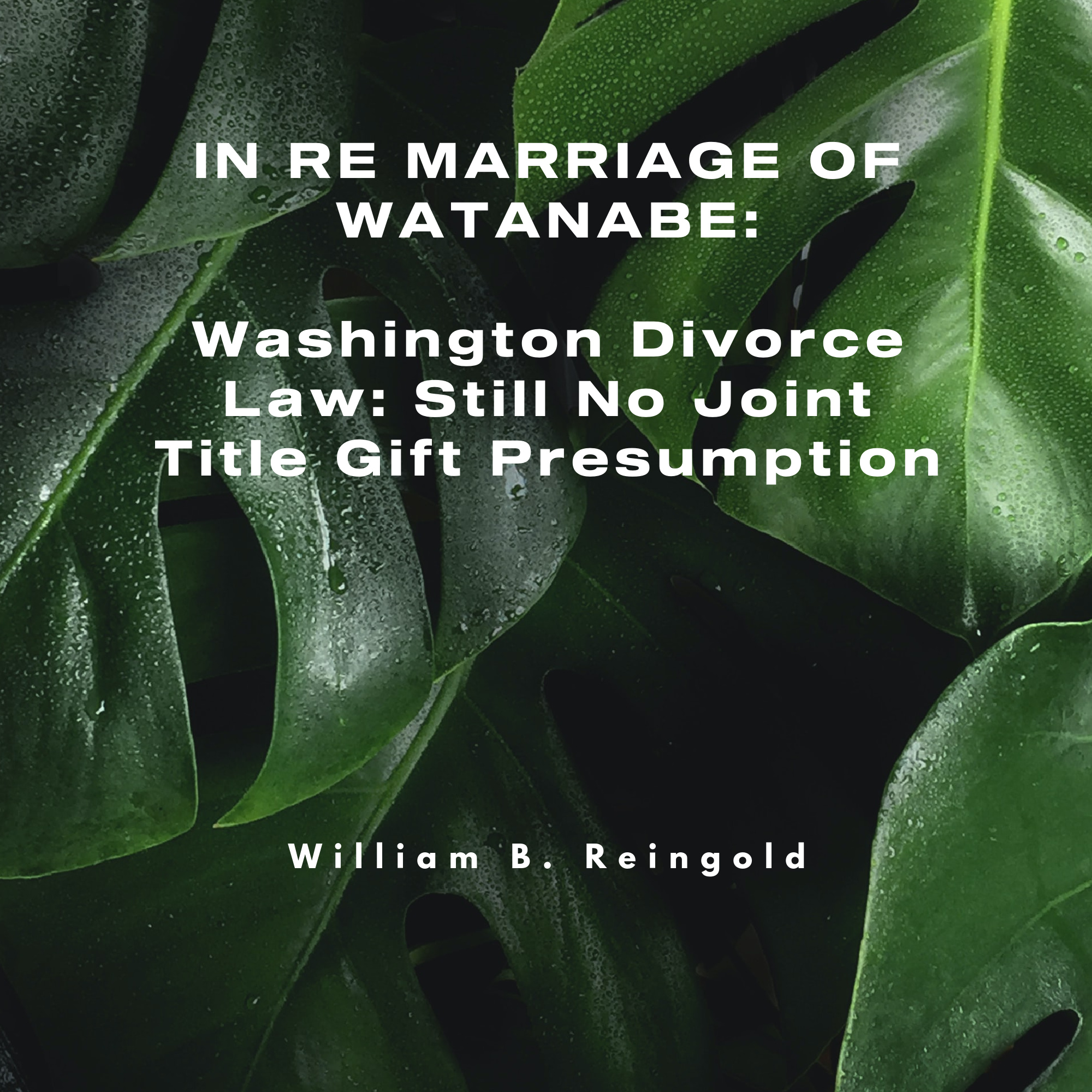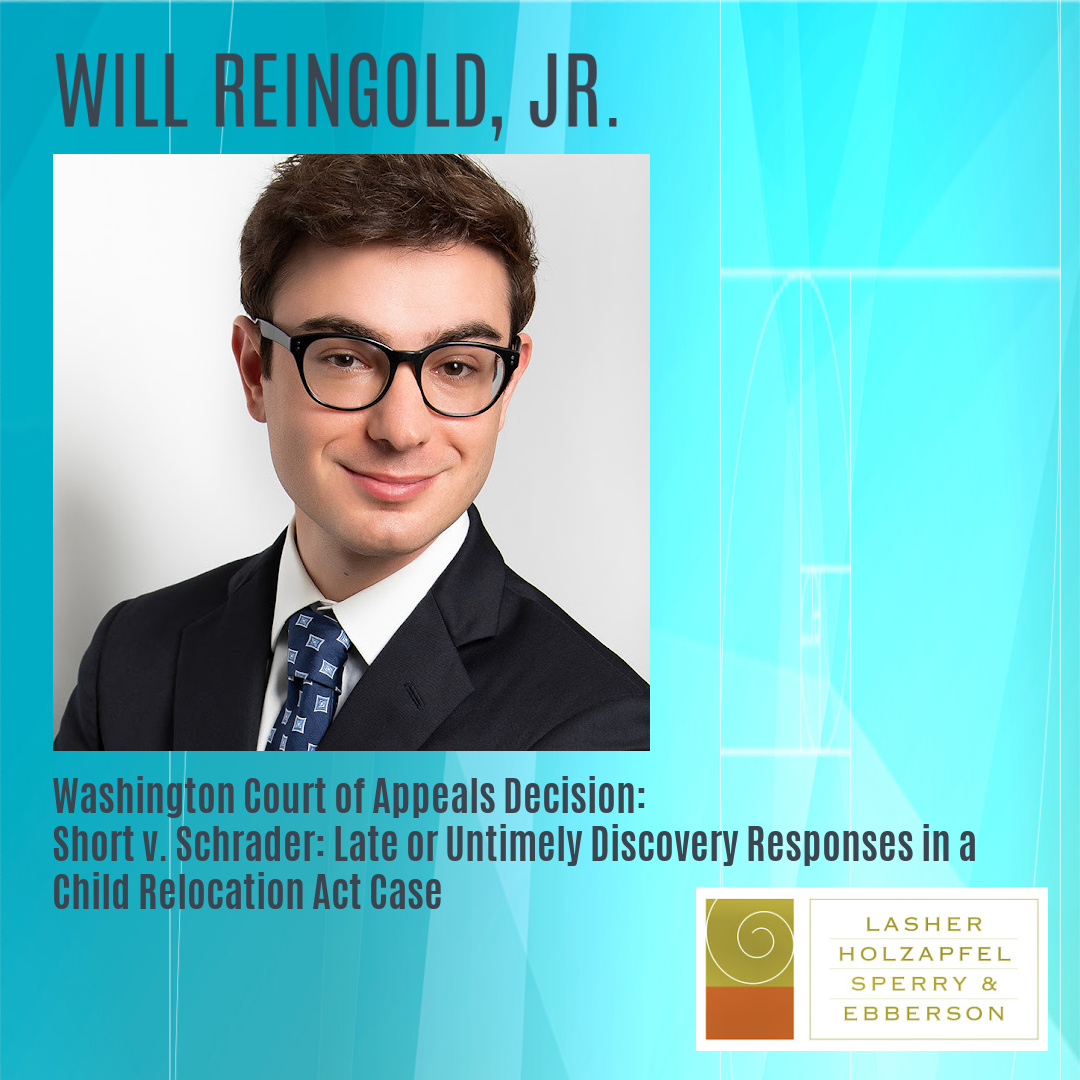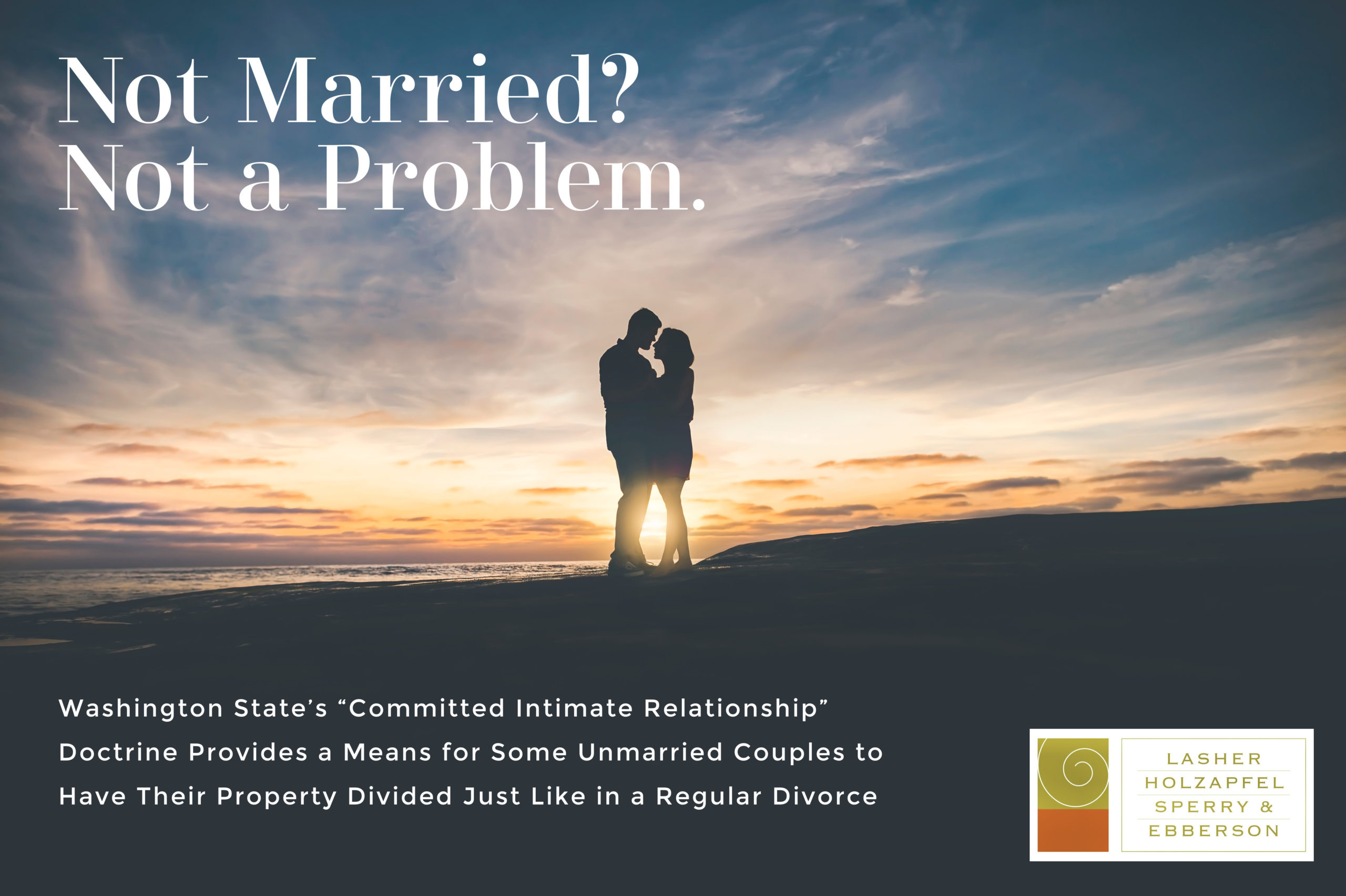News Author: Will Reingold
In Washington, What are your Chances of Successfully Appealing your Family Law Case?
Ask any good attorney a question, and you will probably be given the following response: “It depends.” The answer usually serves as a preface to a more thorough discussion about the specific facts of your case, what the issues are, and a general risk assessment based on the legal grounds you are traversing. This blog
If the U.S. Supreme Court’s Overturning of Roe v. Wade has Caused You Feelings of Anxiety, it Might be a Good Time to Take a Pause . . .
With Roe v. Wade overruled, people are aptly concerned that the constitutionality of same-sex marriage may be in jeopardy. That fear is exacerbated by Justice Thomas’ concurrence in Dobbs v. Jackson Women’s Health Organization, insisting that the Supreme Court’s rationale for overruling Roe be applied to Obergefell v. Hodges’ conclusion that the Due Process Clause
Can I Appeal a Ruling on a Family Law Case in Washington?
If a family law case proceeded to trial or ended in any way other than a settlement, then chances are one (or both) of the parties is unhappy with the result. Perhaps one party feels like an important aspect of his or her case did not go their way; or perhaps the other party believes
In re Dewitt: An Example of Washington’s “Committed Intimate Relationship” Doctrine Applied to a Very Fact-Intensive Case
In a prior blogpost, I discussed Washington State’s Committed Intimate Relationship Doctrine (“CIR”) and outlined the five non-exclusive factors courts consider in determining whether a CIR existed: (1) continuity of cohabitation, (2) duration of relationship, (3) purpose of the relationship, (4) pooling of resources, and (5) intent of the parties. These factors (known as the
In re Marriage of Watanabe: Washington Divorce Law: Still No Joint Title Gift Presumption
The saying that “the beaten road is the safest” is typically associated with advice not to take unnecessary risks and to play things safe. In the law, the notion rings true for courts and their adherence to established precedent and rulings. Judges follow precedent to promote fairness and uniformity in handing down decisions, that way
Late or Untimely Discovery Responses in a Child Relocation Act Case: The Lawyer Escapes Sanctions (For Now)
Civil lawsuits can take a long time. After the complaint and other initial pleadings are filed, the next phase of the case will typically turn to what is referred to as “discovery.” Discovery is the mechanism the parties and their attorneys request and exchange information. For various reasons, it is often a slow and tedious
Not Married, Not a Problem: Washington State’s “Committed Intimate Relationship” Doctrine Provides a Means for Some Unmarried Couples to Have Their Property Divided Just Like in a Regular Divorce
In a divorce, the judge will have to divide your marital property and debts between the spouses. The division must be “just and equitable” under the circumstances of the relationship. But can an unmarried couples receive a just and equitable division of property after breaking up? Under the right circumstances, the answer in Washington is
Divorce in Washington – Cheating and Infidelity: Why Washington State is a No Fault Divorce State
Too often, infidelity plays a role in the demise of a marriage. The spouse who was cheated on will likely (and understandably) be angry. But can that infidelity be used against the cheating spouse during your divorce? In Washington, the answer is no. Washington is a “no-fault” State, meaning that the trial judge will not
Divorced With Children? How to Change Your Child’s Surname
When you get a divorce in Washington, you can ask the court to change your surname as part of the proceedings. While you can change it to any name your heart desires, the common course of events involves restoring one’s maiden name. Sometimes a parent may want to change the surname of their child as
In re M.A.S.C.: A Framework for Assessing Whether to Terminate Parental Rights of an “Intellectually Disabled” Parent
The decision to sever a child’s relations with his or her natural parent is not to be taken lightly. It has been said that “[a]n order terminating parental rights deprives children of their right to financial support, their right to companionship and guidance, their right of inheritance, and their right to Social Security benefits in


